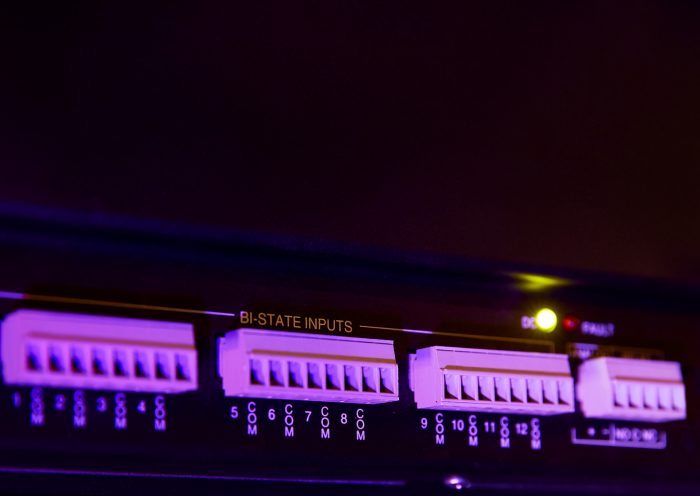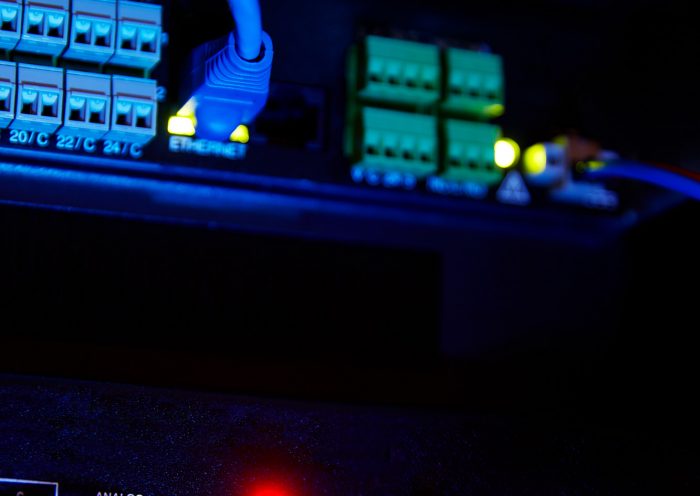

Much has been said about how technology will drive new business models for large organisations that manage critical assets, such as telecommunications and utilities providers. The threat of disruption is forcing companies to consider dramatic shifts in the way they operate and deliver value to customers.
Blockchain is one of the most hyped of these emerging technologies. While its potential to enhance data exchange across complex networks is great, we believe the untested nature of blockchain necessitates caution.
There are risks and questions yet to be answered. We think that large, asset-dependent organisations should think carefully about these as they build their capabilities to leverage digital data.
Blockchain is the term used to describe technologies that create a distributed ledger – essentially a shared database as a means to identify, store, share, and protect the accuracy of data.
The technology allows multiple stakeholders to securely access identical, verifiable and tamper-proof copies of data, such as transactions between two or more parties. The promise of blockchain is greater transparency, control, and the ability to remove intermediaries.
McKinsey and Company suggest that blockchain has the potential to streamline transactions, cut costs, and remove friction throughout the utilities value chain.
For industrial applications, this may be through blockchain-enabled sensors and controls that centralise data for improved grid resilience. Or it may involve using blockchain to manage contracts for energy flow and payments in autonomous peer-to-peer microgrids.
For telcos, promising blockchain use cases include:
Blockchain has a lot of potential—but it is wise to reflect on how achievable these outcomes are in the short-term.
The extent to which large organisations can benefit from blockchain depends on addressing issues around the technology’s cost, scalability and capabilities. Companies need to consider the potential significant energy use required (and associated costs), the availability of public or private blockchains, and which use cases make sense (by delivering greater value) for their business and end-users.
A report by global consultancy Deloitte about blockchain use cases in the telecom industry highlights those challenges including:
We believe it is essential to start with the business case. Before settling on blockchain as the solution, companies in asset-intensive industries should ask themselves: what problem are we trying to solve that would make an investment in blockchain necessary?
According to Gartner, another key area where blockchain is poised to be a ‘game-changer’ is around data security. Given that organisations are already rapidly adopting solutions to capture, store and act on large volumes of data, ensuring the integrity of that data is of utmost importance.
In particular, for many businesses cyber security is a common barrier to fully embracing the IIoT. Rising cyber threats and business interruption are the top risks that trouble global executives.
Blockchain-enabled solutions could reduce the likelihood of endpoint data being compromised or add an additional level of encryption. It could also enhance audit-ability—giving businesses a clear picture of remote devices in their network, how they are being used, by who and when, and changes made to the data produced.
While blockchain could bolster security, it will never be a silver bullet for addressing vulnerabilities. It is important to take a holistic approach to the way your business balances innovation and appropriate safeguards.
For instance, while current IIoT applications are thought of as being fairly exposed, it depends on the devices, software and structures you put in place and the people and processes you use to manage them.
We are particularly sensitive to this, given our role in helping businesses manage critical assets. Our customers expect security features to be built-in from the point that data is collected through to end users.
The most prominent and well-developed application of blockchain to date has been cryptocurrency such as Bitcoin and Ethereum. First introduced in the late 2000s, cryptocurrency markets are still characterised by volatility, and the path to establishing a viable, widely used digital currency is still unclear.
Interest in the potential of the technology should not be confused with its practical capabilities: businesses need to prioritise functionality and usability if they expect to successfully embed new technologies in meaningful ways.
Researchers from Harvard Business School suggest: “It would be a mistake to rush headlong into blockchain innovation without understanding how it is likely to take hold.” They recommend that businesses start by experimenting with single-use applications and services, or localised projects. Here at accesstel, we have started experimenting with Corda, an open source blockchain platform for businesses.
In addition, it is important for companies to evaluate how they may need to change or develop their internal processes and skill sets to benefit from blockchain’s potential use cases, as and when transformative platforms become viable. For instance, the ability to provide more flexible payment options may require a re-think of team structures and marketing approaches.
Realising the benefits of blockchain is not without challenges. Accessible platforms that truly harness the technology may be years away. However, we agree it is a good time to start contemplating blockchain’s potential impact and early applications that are fit-for-purpose.
As with any technology investment you also need to ask:
In our opinion, take a long-term view. Focus on integrated technologies and systems that enable you to grow and manage assets more effectively right now. At the same time, taking the time now to consider how you will leverage new technology to help evolve towards your strategic objectives should help you sleep better at night.

Most businesses will have an asset or assets that they define as critical. It’s critical because its successful functioning contributes to the ongoing success of the business.
Read more
Not sure where to start when it comes to TED talks? We've curated some of our favourites around data.
Read more